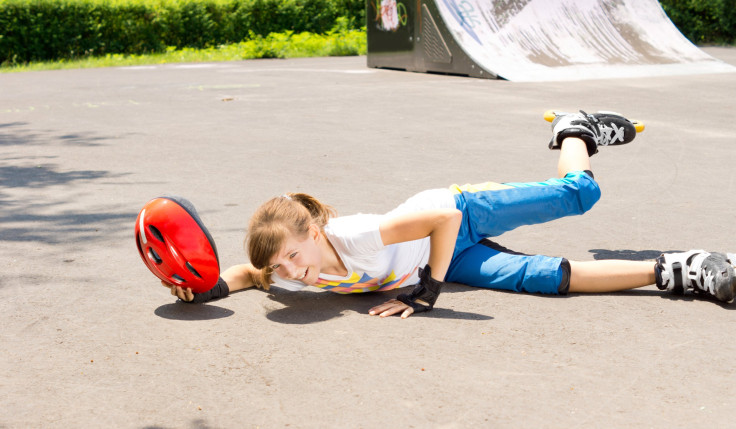It’s Not Just Trauma To The Head: Minor Accidents Can Lead To Brain Damage Too, Affecting Memory And Thinking

If you’re clumsy or uncoordinated, you might want to make sure that next time you’re wearing a helmet when riding a bike, or paying attention instead of texting while walking down the street. A new study has found that even minor head injuries can cause some form of brain damage that might affect memory and thinking.
Researchers out of Newcastle University examined 53 people who had mild or moderate head injuries and compared them to 33 people who had no injuries. The scientists used a type of MRI scan called diffusion tensor imaging scans, which could detect brain cell damage and also map fiber tracts. Memory and thinking skills were 25 percent lower in the first group, possibly linked to nerve fiber disruptions in the brain, the researchers found. “Most of the studies thus far have focused on people with severe and chronic traumatic brain injury. We studied patients who had suffered clinically mild injuries often from common accidents such as falling from a bicycle, or slow speed car accidents,” said Dr. Andrew Blamire, lead author of the study, according to PsychCentral. “This finding is especially important, as 90 percent of all traumatic brain injuries are mild to moderate.”
There is a difference between a severe traumatic brain injury (TBI) and a mild traumatic brain injury (mTBI); obviously the former is far more serious than the latter. Concussions are a form of milder TBI that are caused when regular brain function is impaired temporarily, leading to difficulty thinking clearly, remembering things, and experiencing headaches or irritability. Severe traumatic brain injuries often lead to long-term impairment, which can increase the chances of dementia. Mild traumatic brain injuries, meanwhile, can often repair themselves: the brain is able to recover and rewire itself over time.
When tested again one year after the injury, the thinking and memory skills of the previously injured were the same as those who didn’t have an injury. “These results show that thinking skills were recovering over time,” Blamire said. “The areas of brain damage were not as widespread across the brain as previously, but focused in certain areas of the brain, which could indicate that the brain was compensating for the injuries.”
To prevent mild traumatic brain injuries, be sure to wear a helmet when riding a bike, motorcycle, scooter, or playing any contact sport. Wear a helmet when riding a horse or skiing or snowboarding as well. Tripping on small items in your house can also lead to unnecessary falls, so clear your floors from clutter; use nonslip mats in the bathtub, and place grab handles in the shower, which can help you catch a fall.
Source: Croall I, Cowie C, He J, Peel A, Wood J, Aribisala B. White matter correlates of cognitive dysfunctio



























